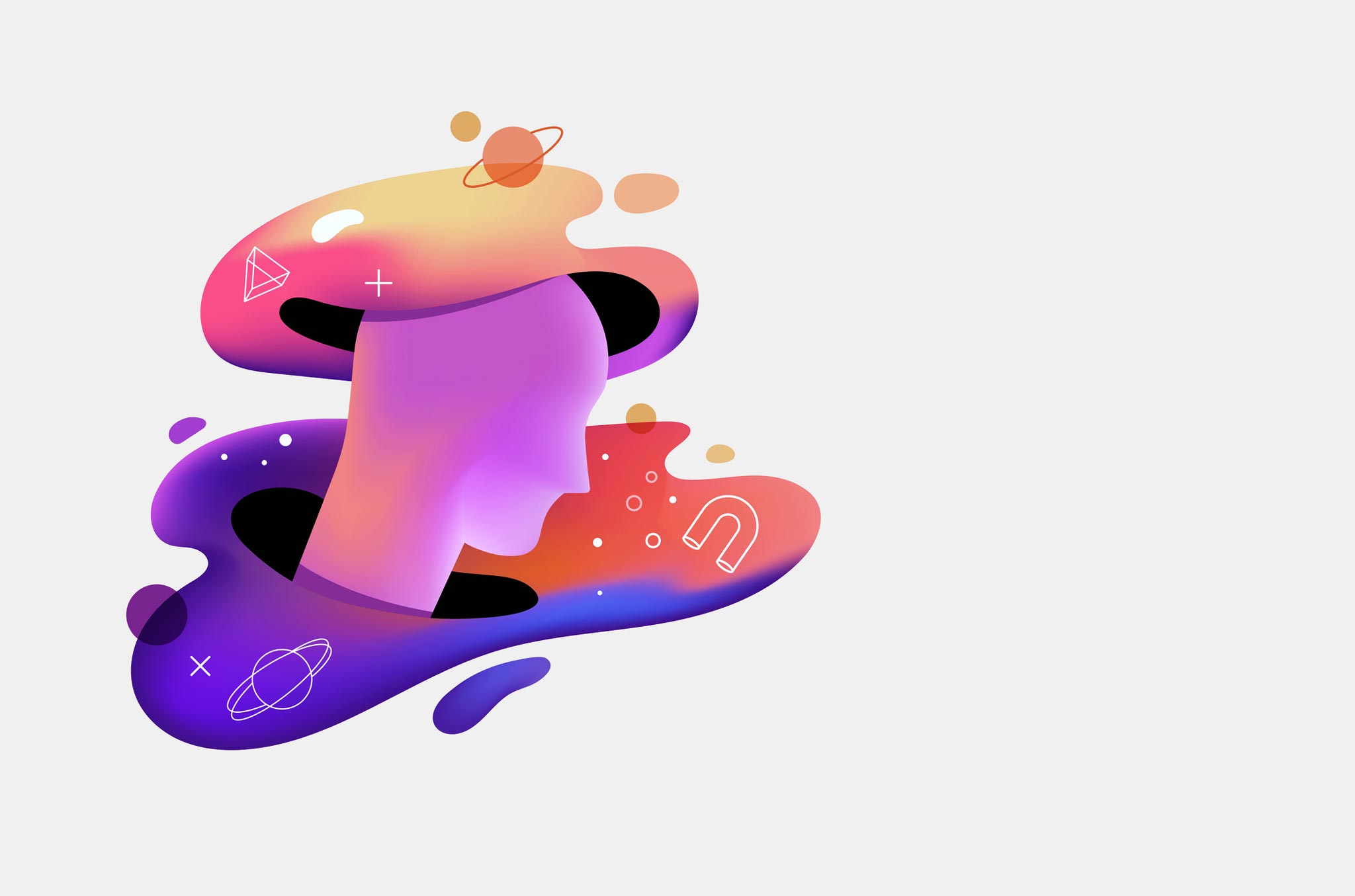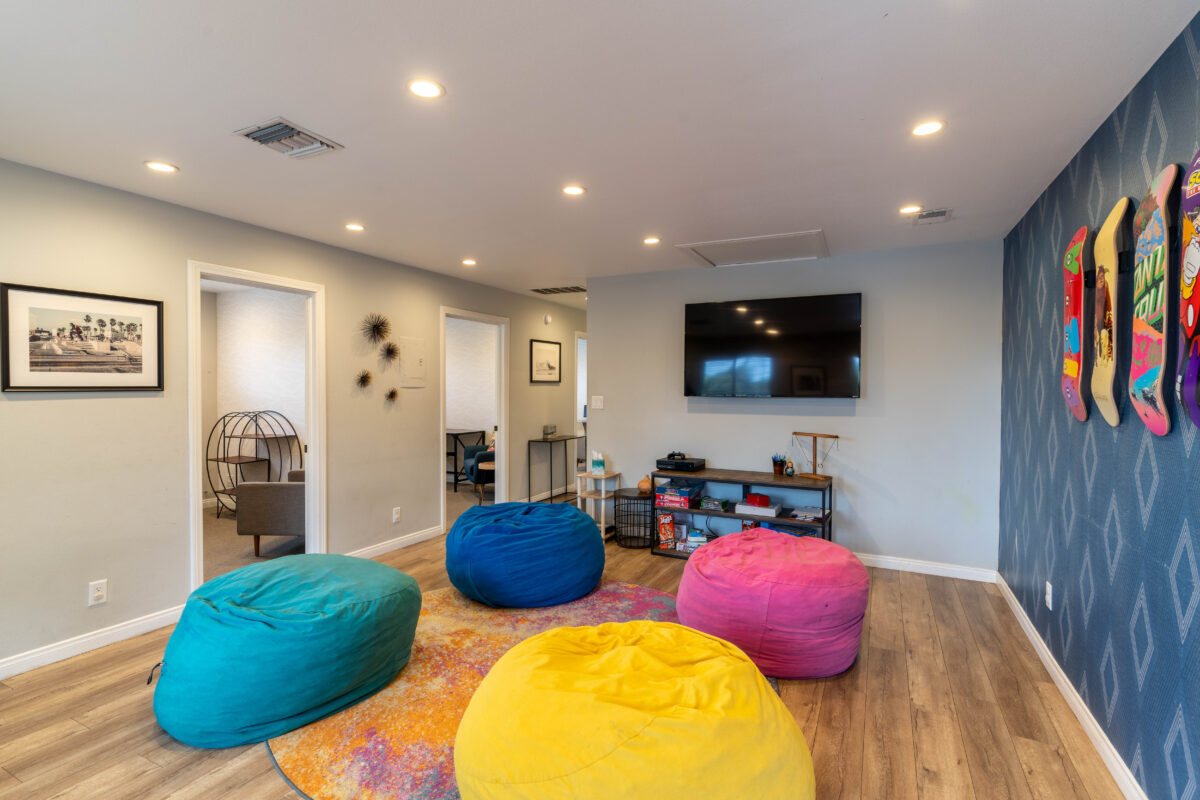
Grief Disorder Treatment in Los Angeles, California
Grief Disorder Treatment in Los Angeles
Grief disorder can and will disrupt your everyday life. Like all other severe human conditions, grief disorder can only get more serious if it is left untreated. Clear Behavioral Health is here to help. If you have a loved one that’s suffering from a mental disorder such as grief, contact us today and set up an appointment. We’ll provide them with the resources and attention they need to heal from their trauma.

What is Grief Disorder?
When you lose something that you hold in high value, your body has a natural response. That response to losing someone who is very close to you is called grief. This is something that can manifest from multiple types of losses. These losses can include:
- The loss of a job or a relationship
- A terminal illness diagnosis
- A natural disaster
The feelings someone faces during grief can be intense. This can understandably result in ache, anger, anguish, sadness, and painful longing for what they have lost. It is also common for people to feel disconnected from their lives.
Part of what makes grieving so difficult to deal with is that this process cannot be controlled or predicted. In order to help your loved one work towards acceptance, our compassionate team provides support and guidance. We work with patients one on one, so they are able to easily connect with others.
The grieving process can be as brief as a few weeks and as long as many years. No matter, proper care is the only thing that can truly ease suffering. It is important to keep in mind that grief can become more complicated if untreated. Clear Behavioral Health can prevent grief from leading to further depression, anxiety, and other symptoms.
Types of Grief Disorders
Complicated Grief
Also known as persistent complex bereavement disorder, complicated grief is different than normal grief. We understand that every person has their own obstacles to overcome and everybody has their own healing process. These factors are what make grief complicated.
An example of complicated grief could be a complication related to the circumstances of the death. This includes losing a child, losing a loved one to suicide, the death of a partner, or the death of a person who was abusive.
If your loved one is suffering from complicated grief, they may not be able to accept their circumstances. There could be extensive feelings of longing or yearning, emotional numbness, or intense emotional pain that don’t lessen over time. This will interfere with their ability to concentrate, especially when memories, images, or thoughts of the past experience cross through their mind.
Chronic or Prolonged Grief
Prolonged grief disorder is a prolonged psychological response to an intense loss, such as the death of a loved one. It is also referred to as chronic grief or prolonged grief disorder (PGD). Unlike normal grief, prolonged grief lasts for an extended period of time, disabling and overwhelming the individual in its intensity, and can interfere with the person’s ability to function.
Typical features include prolonged yearning for the deceased, persistent grief, difficulty staying connected with the outside world, preoccupation with thoughts of the deceased person and difficult symptoms like anger, guilt and despair. It may also be accompanied by physical changes like fatigue or sleep disturbances. If left untreated, prolonged grief can lead to depression, anxiety, or other psychiatric disorders making it important to seek professional help if you experience any disabling or persistent symptoms after losing someone close.
Disenfranchised Grief
Disenfranchised grief is a term that refers to feeling bereaved or sorrowful over someone or something who society does not recognize as being worthy of mourning. Many forms of disenfranchised grief exist, such as the death of a pet, miscarriage, or infertility. These types of losses are often a source of shame, denial, and deep sadness which can be compounded when there is little to no support from others in recognizing the importance of the loss.
Studies have shown disenfranchised grief has a lasting effect on both mental and physical health due to feelings of isolation it brings. To bring more understanding and unity to disenfranchised grief sufferers, loved ones should share their stories in an effort to increase awareness and help make sure disenfranchised individuals don’t feel alienated in the grieving process.
Traumatic Grief
Traumatic grief is a type of bereavement that goes beyond the normal process of grieving. It arises when traumatic events occur around death, or traumatic events cause the death. Often, traumatic grief feels overpowering and has a deep impact on an individual’s mental, physical and social functioning for long periods of time. This is due to the reaction in the brain to traumatic memories around naming the traumatic experience and coming to terms with it.
The main factor that distinguishes normal from traumatic grief is the intensity – traumatic grief is more extreme and lasts longer than ordinary bereavement. Traumatic grief can also be accompanied by depression, anger, guilt and difficulty focusing on activities. Professional treatment such as therapy or support groups can help people experiencing traumatic grief to understand their experience and find ways to cope better.
Anticipatory Grief
Anticipatory grief disorder refers to anticipatory mourning, which happens when a person anticipates the loss of someone close to them before their death. This process is most commonly experienced by those who are caring for an individual with terminal illness, as they struggle over anticipatory loss and all the emotions that come with it. It’s important to note that anticipatory grief can vary widely in intensity, duration, and frequency of occurrence.
Furthermore, anticipatory grief includes a wide range of emotions such as fear and guilt, along with the classic signs of bereavement like sadness and depression. Although anticipatory grief can be similar in some respects to standard grief, anticipatory grieving occurs while the loved one is still alive which distinguishes it from a regular grief disorder that develops upon their passing.
Absent Grief
Absent grief disorder, or ambiguous loss, is type of grief disorder characterized by distress over an absent person lacking a tangible resolution. Absent grief differs from typical, acute grief in that the absent person can never be meaningfully replaced, and typically involves painful uncertainty as to their outcome. This type of grief is associated with long-term losses such as soldiers reported missing in action or family members who have been absent for extended periods of time.
In contrast with the anticipatory grief related to death, absent grief lacks closure that could provide comfort and does not allow for the comforting habits that accompany traditional healing through bereavement. As absent grief can linger indefinitely, individuals experiencing this form of pain must frequently internalize it in order to cope with its prolonged nature.
Distorted Grief
Distorted grief disorder is a kind of distorted psychological response to the death of a loved one, characterized by an exaggerated level of emotion and an inability to move on with a sense of acceptance. It differs from regular grief in that distorted grief involves distorted perception and reactions that result in maladaptive coping strategies.
These maladaptive strategies can become entrenched patterns if left unchecked and can lead to depression, anxiety, difficulty functioning in daily life, unrealistic expectations of self as well as mistrust and hopelessness towards others, on top of other mental disorders. Distorted grief disorder is not only more intense than normal grieving but also longer lasting. It is important that those afflicted receive emotional or professional help to help them return back to living life normally again.
Secondary Loss
Secondary loss is a type of grief disorder that occurs secondary to another type of loss. It can occur when an individual’s world view is shattered due to changes in their life circumstances and the identity they had constructed for themselves no longer aligns with their current reality. To put it simply, secondary loss results from the realization that your life won’t be the same as it used to be; secondary experiences such as watching others around you who are ‘normal’ can make this realization even more intense.
Unlike normal grief disorder, secondary loss often has a feeling of absence rather than one of presence; the family member or other lost entity isn’t physically present yet the lack thereof is felt just as deeply. For example, an individual may experience secondary loss after losing their job if they had defined their sense of self by their occupation and now must adjust to a new way of life.
How We Treat Grief
No two people will deal with grief in the same exact way. However, those who are grieving may be able to relate to one another as they work their way towards acceptance. Are you concerned for a loved one during their grieving? Trust your intuition. They might need professional help that you alone cannot provide. It is imperative that this pain management process starts sooner rather than later. We can enroll your loved one in a program that will help them manage their loss.
Our Treatment Programs for Grief Disorder
At Clear Behavioral Health, our experts offer both group and individual therapy as ways to work through grief disorder and resolution. The personal therapy programs begin with the initial program acceptance. Then, each client begins working with a counselor that will help them to learn various coping skills and other mechanisms. These skills help with processing feelings and working toward improved mental wellness.
Individualized Therapy
Single sessions allow your loved one to fully understand all of the factors that are contributing to their inability to move forward. We’ll identify the best grief management techniques to suit their personal needs through a customized treatment plan.
Group Therapy
On the other hand, group sessions have their own share of benefits as well. Our team at Clear Behavioral Health brings patients together to build connections with each other.
Your loved one will have the opportunity to process the same or similar feelings with others. This supportive group environment allows patients to bond. These connections form a community centered around a common goal of healing.
Virtual Grief Therapy Program
Clear Behavioral Health also conveniently offers a telehealth mental health treatment program for those suffering from all types of grief in California.
Grief Disorder Treatment in Los Angeles
We never make assumptions about a person’s life or experiences and pride ourselves on being providers of outstanding mental health care that is both effective and long-lasting.
Signs and Symptoms of Bereavement Disorder
When someone is suffering from a grief disorder, it can be difficult to objectively realize they’re in a cycle. A few of the prolonged grief symptoms to look out for include:
- Difficulty making decisions
- Carrying responsibility for the loss
- Having low self-esteem
- Feelings of numbness, helplessness, and weakness
- Feeling like an outcast
- Dropping out of social activities
- Being aggressive
- Pulling away from affection or close contact
- Self-destructive thoughts
- Obsession with the loss
What are the Stages of Grief?
1. Shock and Disbelief
The grief healing process typically starts with disbelief about the death of a loved one. At this stage, the individual experiences a natural reaction to loss and may be extremely overwhelming due to the difficulty accepting the news. It can present itself in waves of intense feelings of sadness and painful emotions followed by feeling normal.
2. Denial
Denial is the beginning phase. It is an effective, albeit temporary, way to minimize the crushing pain of loss. Denial is a way to break everything down in a griever’s mind. They can think through feelings step by step as opposed to facing everything at once.
3. Anger
When a person is faced with having to adjust to a new reality, intense emotional pain discomfort in the form of anger is sure to follow. Anger allows them to avoid feelings of vulnerability by expressing their emotions with less fear of being rejected or judged.
4. Bargaining
There are many different ways in which a grieving patient can resort to bargaining. They feel so helpless that they direct a request at a higher power that could potentially influence events at hand.
5. Guilt
At this stage some may begin to feel guilt. They will dwell on whether or not they could have done anything to prevent the loss or feel guilty for not making amends prior to the persons death. On the other hand, some might harbor resentment towards the deceased for leaving them.
6. Depression
Bargaining causes a person to focus on their own regrets or faults. When their imagination begins to ease down and they realize they cannot change their reality, the feelings of loss come tumbling in. This stage often results in emotional numbness and the person retreating into themselves.
7. Acceptance
Acceptance does not mean that the griever no longer feels the anguish of the loss. This step means that they are no longer avoiding reality and constantly trying to change it. Regret and sadness can still be present during this phase, but they are less likely to resort to the previous emotional survival phases.
If your loved one is experiencing any of these stages of grief disorder, Call Clear Behavioral Health today to connect them with supervised help.
Grief Disorder Treatment in Los Angeles
At Clear Behavioral Health in Los Angeles, our Grief Disorder programs help individuals create healing from grief and trauma. Our structured programs stand on a full continuum of care, helping individuals acclimate back to the real world with the most structure.
Contact Clear Behavioral Health today to find out how our programs can help you or a loved one dealing with guilt and loss.
Our locations
We are in-network.
Learn more about your coverage options:
Our other services
We provide mental health services for adults and teens and substance use disorder treatment for adults throughout Los Angeles and California. Learn more about some of our other featured services:
Mental health resources
-

How ADHD Treatment Helps You Build Focus, Structure, and Confidence
Explore ADHD treatment options for adults and teens, including outpatient programs that build focus, structure, and real-life skills.
-

Best New Year’s Resolutions for 2026: Real Goals That Actually Stick
New Year’s resolutions don’t have to feel overwhelming. Learn how to set mental health goals for 2026 that feel achievable…
-

Journaling for Mental Health: From Mental Noise to Unlocking Your Flow State
Overwhelmed or mentally scattered? Journaling for mental health can help reduce stress, organize thoughts, and bring real emotional clarity.
View our complete archive of resources from our expert contributors:
What people are saying:
Contact Us
For more information about our services, to schedule a tour, or to find out if your treatment is covered by your health insurance, contact our expert clinical team today by completing this form.
































